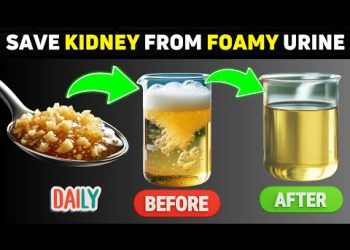“`html
Understanding Liver Cirrhosis
Liver cirrhosis is a late stage of liver scarring (fibrosis) caused by many forms of liver diseases and conditions, such as hepatitis and chronic alcoholism. It’s critical to understand how lifestyle choices can impact this essential organ’s health.
Early Warning Signs
One of the primary reasons liver cirrhosis can be dangerous is the lack of symptoms in its early stages. However, recognizing early warning signs can be crucial for managing the condition effectively. These signs may include fatigue, easy bruising or bleeding, and jaundice, which is a yellowing of the skin and eyes.
Cognitive Changes and Mental Confusion
As cirrhosis progresses, it can lead to a condition known as hepatic encephalopathy, causing confusion, memory issues, and even personality changes. It’s important to be aware of these potential cognitive shifts as they can significantly affect quality of life.
Digestive Disturbances
Liver cirrhosis can also lead to digestive issues, as the liver plays a key role in digestion. Individuals may experience nausea, appetite loss, and weight loss. Monitoring these symptoms can provide clues that the liver is struggling.
Fluid Retention Indicators
Fluid retention, especially in the legs and abdomen, is another red flag not to ignore. Ascites, a condition characterized by fluid buildup in the abdominal cavity, can be a common complication of cirrhosis.
Potential Skin Changes
Changes in skin appearance can be indicative of liver issues. Spider vein-like patterns on the skin, intense itching, and a reddening of palms (palmar erythema) can suggest underlying liver dysfunction.
The Role of Nutrition
Nutrition is a vital aspect of managing liver health. A diet low in saturated fats and high in fruits, vegetables, and lean proteins can alleviate stress on the liver. It’s important for individuals with cirrhosis to discuss dietary plans with a healthcare provider.
Chronic Liver Disease Management
Managing chronic liver disease involves regular medical check-ups, necessary lifestyle modifications, and possibly medications to manage symptoms. It’s essential to follow treatment plans established by healthcare professionals.
Preventive Measures
Prevention of liver cirrhosis is better than cure. Limiting alcohol consumption, maintaining a healthy weight, and practicing safe measures to avoid hepatitis infections are crucial steps to prevent liver damage.
The Importance of Regular Screening
Regular liver function tests and screenings are important, especially for individuals at risk of liver disease. Early detection through screenings can improve disease outcomes and halt progression with timely interventions.
“`









